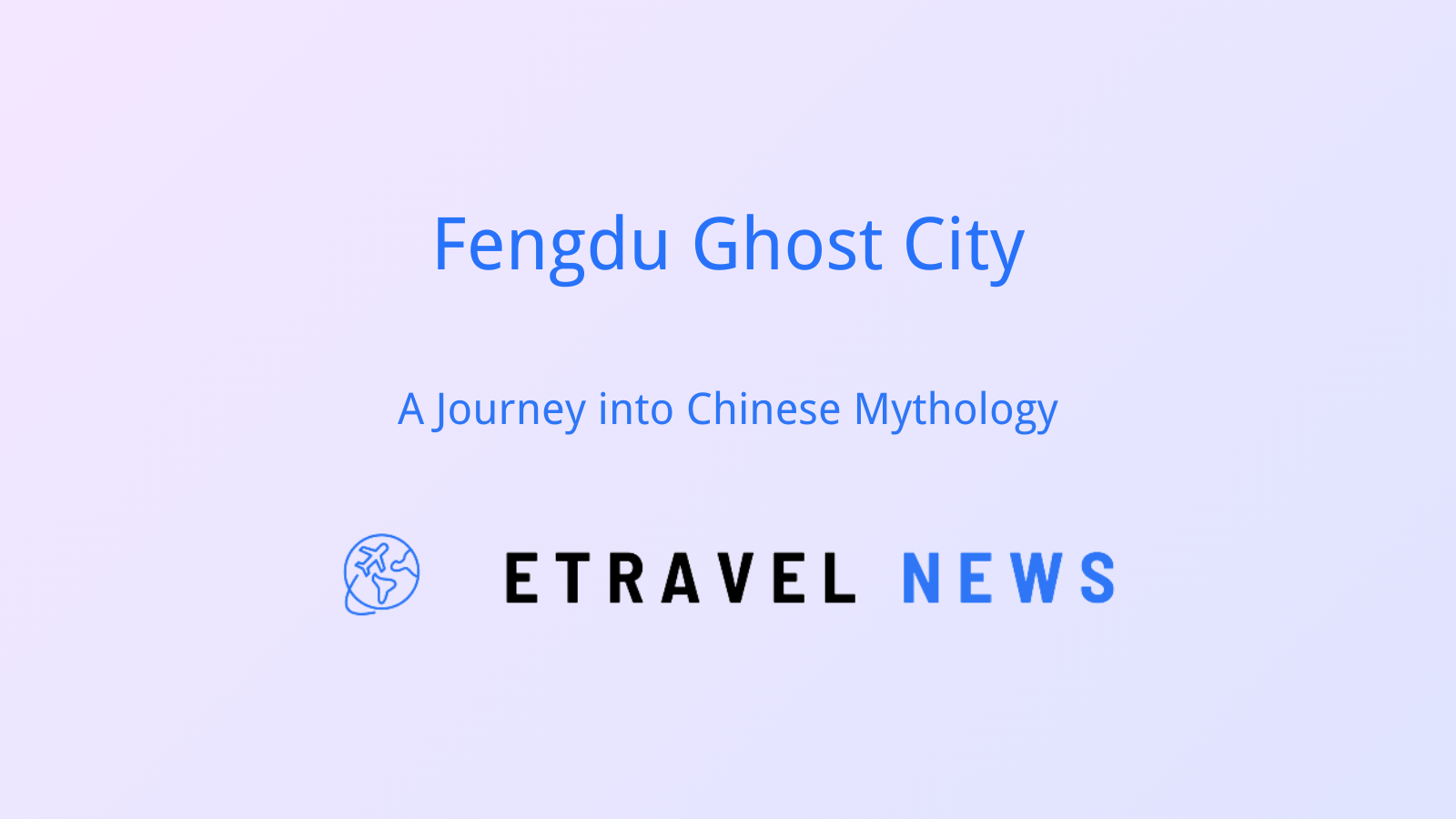Introduction to Fengdu Ghost City and Fengdu
Perched dramatically on the northern bank of the Yangtze River in Chongqing Municipality, Fengdu Ghost City (丰都鬼城, Fēngdū Guǐchéng) stands as a unique testament to Chinese mythology and folklore. This ancient complex, steeped in over 2,000 years of history, offers visitors a glimpse into the Chinese concept of the afterlife.
Fengdu earned its moniker “Ghost City” due to its long association with the underworld in Chinese mythology. The site blends elements of Taoism, Buddhism, and Confucianism, creating a rich tapestry of spiritual beliefs and practices.
For centuries, Fengdu has captured the imagination of locals and visitors alike, serving as both a cultural landmark and a popular tourist destination along the Yangtze River.
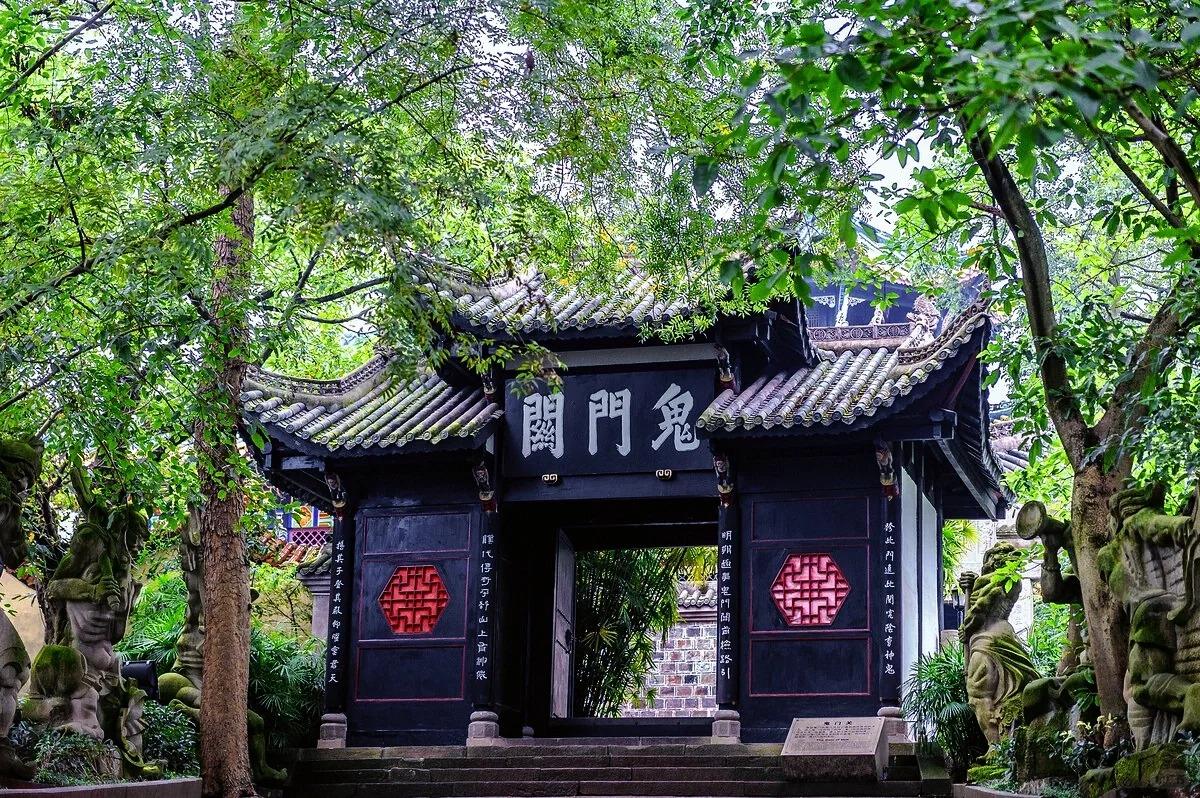
Mythological Background and Legends
The origins of Fengdu’s ghostly reputation can be traced back to the Han Dynasty (206 BC – 220 AD). Legend tells of two imperial officials, Yin and Wang, who achieved immortality through their cultivation of Tao. Their names combined to form “Yinwang,” which in Chinese mythology became synonymous with the “King of the Underworld.”
This tale intertwines with broader Chinese concepts of the afterlife, where the deceased must undergo trials and judgment before reaching their final resting place. Fengdu Ghost City is believed to be a gateway to this underworld, where spirits are processed before moving on to their next existence.
The site’s mythology draws from various religious traditions:
- Taoism: Concepts of immortality and spiritual cultivation
- Buddhism: Ideas of karma and reincarnation
- Confucianism: Emphasis on moral judgment and filial piety
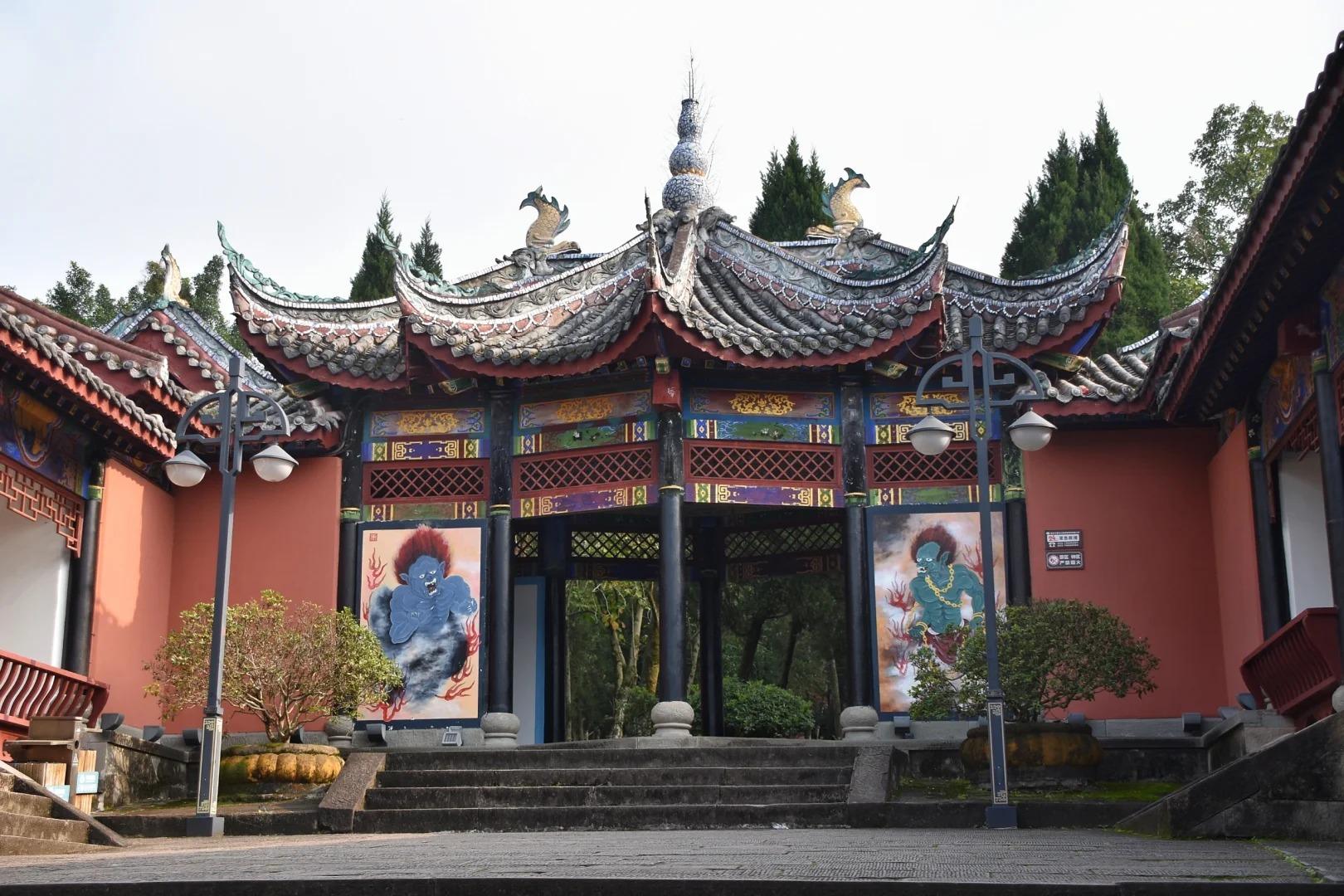
Key Attractions in Fengdu Ghost City
Fengdu Ghost City offers a series of symbolic structures and sites:
| Attraction | Significance |
|---|---|
| Nothing-to-Be-Done Bridge | Represents the boundary between life and death |
| Ghost Torturing Pass | Depicts the 18 levels of hell in Chinese mythology |
| Last-Glance at Home Tower | Where spirits supposedly take a final look at the mortal world |
| Tianzi Palace | Showcases intricate architecture and underworld themes |
Each of these attractions provides visitors with a vivid representation of Chinese beliefs about the afterlife and moral judgment.
Cultural and Religious Sites
The complex houses numerous temples and shrines, including:
- Temple of the Jade Emperor: Dedicated to the supreme deity in Chinese mythology
- Temples of the Ghost King: Honoring the legendary rulers of the underworld
- Precious Pagoda: A unique structure blending various architectural styles
These sites offer insight into the rich tapestry of Chinese religious practices and beliefs, showcasing intricate artwork and symbolic representations of spiritual concepts.
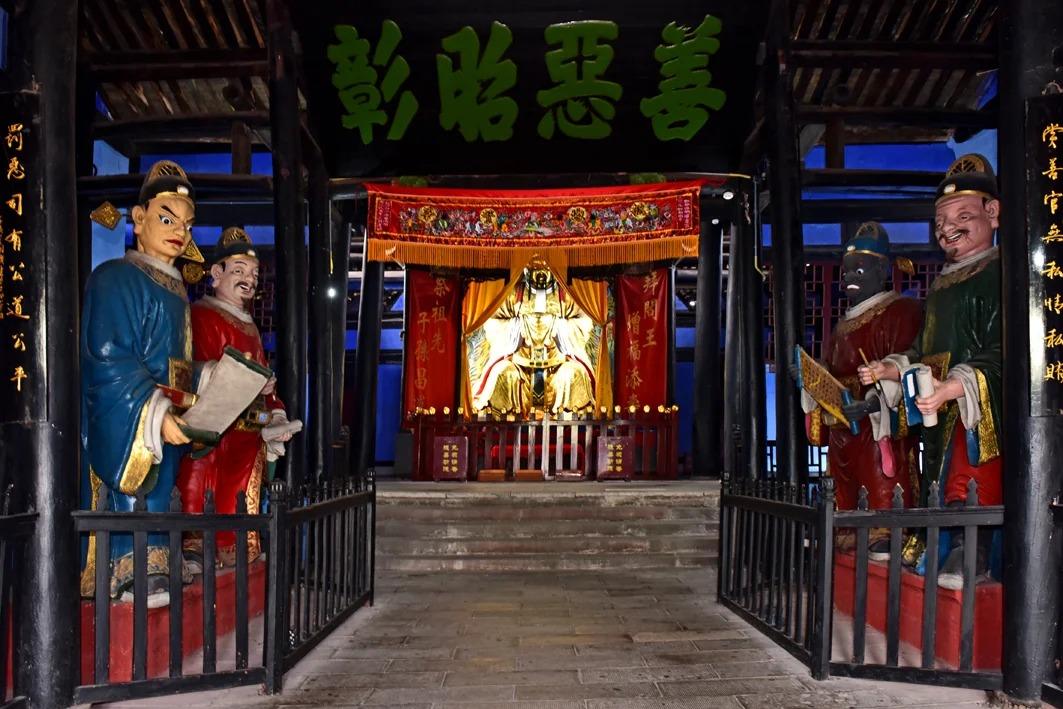
Modern Fengdu and Relocation
The construction of the Three Gorges Dam dramatically impacted old Fengdu. As water levels rose, much of the original city was submerged. In response, a new Fengdu city was built on higher ground, and residents were relocated.
Despite these changes, Fengdu Ghost City remains largely intact, situated on Ming Mountain above the flood line. The site continues to draw visitors, offering a unique blend of ancient mythology and modern tourism.
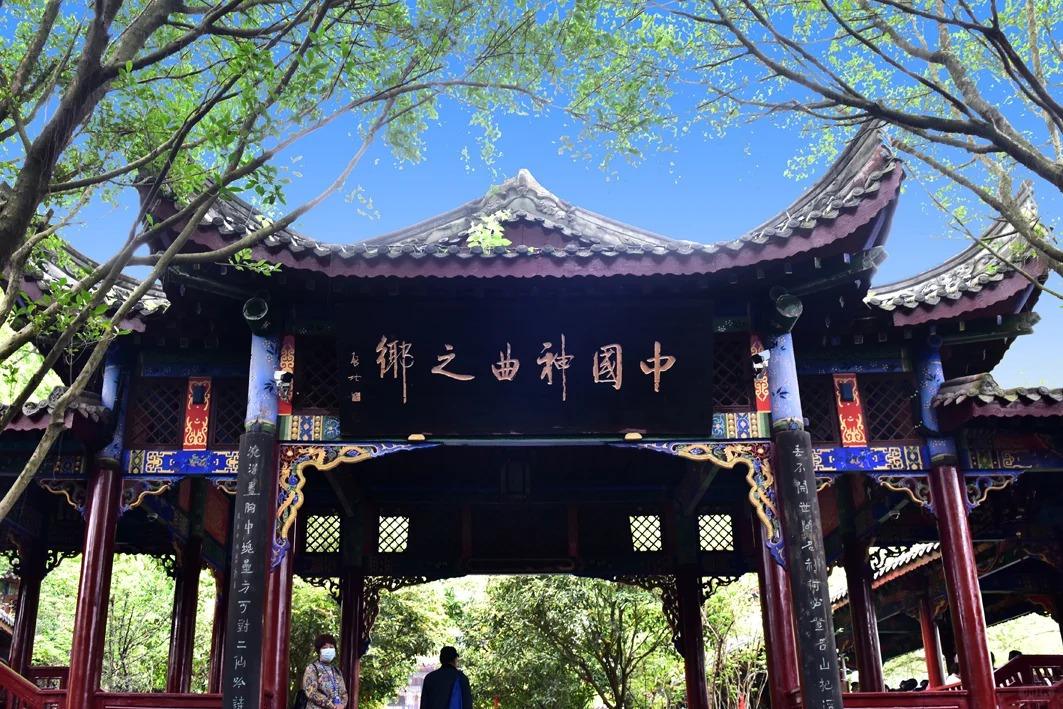
Visiting Fengdu Ghost City
The best time to visit is during spring (March to May) or autumn (September to November) when the weather is mild. A typical tour lasts about 2-3 hours, allowing visitors to explore the main attractions.
Cultural performances and reenactments bring the mythology to life, offering an immersive experience for visitors. For photographers, the site provides numerous opportunities to capture stunning architecture against the backdrop of the Yangtze River.
Practical Information for Travelers
To reach Fengdu Ghost City:
- Join a Yangtze River cruise that includes Fengdu as a stop
- Take a bus or taxi from new Fengdu city (about 30 minutes)
Essential details:
- Entrance Fee: Approximately 100 CNY (subject to change)
- Opening Hours: 8:00 AM to 5:00 PM daily
- Guided Tours: Available at the entrance, offering insights into the site’s mythology and history
Nearby attractions include the White Crane Ridge Underwater Museum and the new Fengdu city, where visitors can experience modern Chinese urban life.
Fengdu Ghost City offers a unique journey into the heart of Chinese mythology and spirituality. As you climb the steep steps of Ming Mountain, passing through ornate gates and eerie sculptures, you’ll feel transported to another realm – one where the lines between the mortal world and the afterlife blur. Whether you’re a history buff, a mythology enthusiast, or simply curious about Chinese culture, Fengdu Ghost City provides an unforgettable experience. It stands as a testament to China’s rich spiritual heritage, inviting visitors to contemplate life, death, and the complex tapestry of beliefs that have shaped Chinese civilization for millennia.


